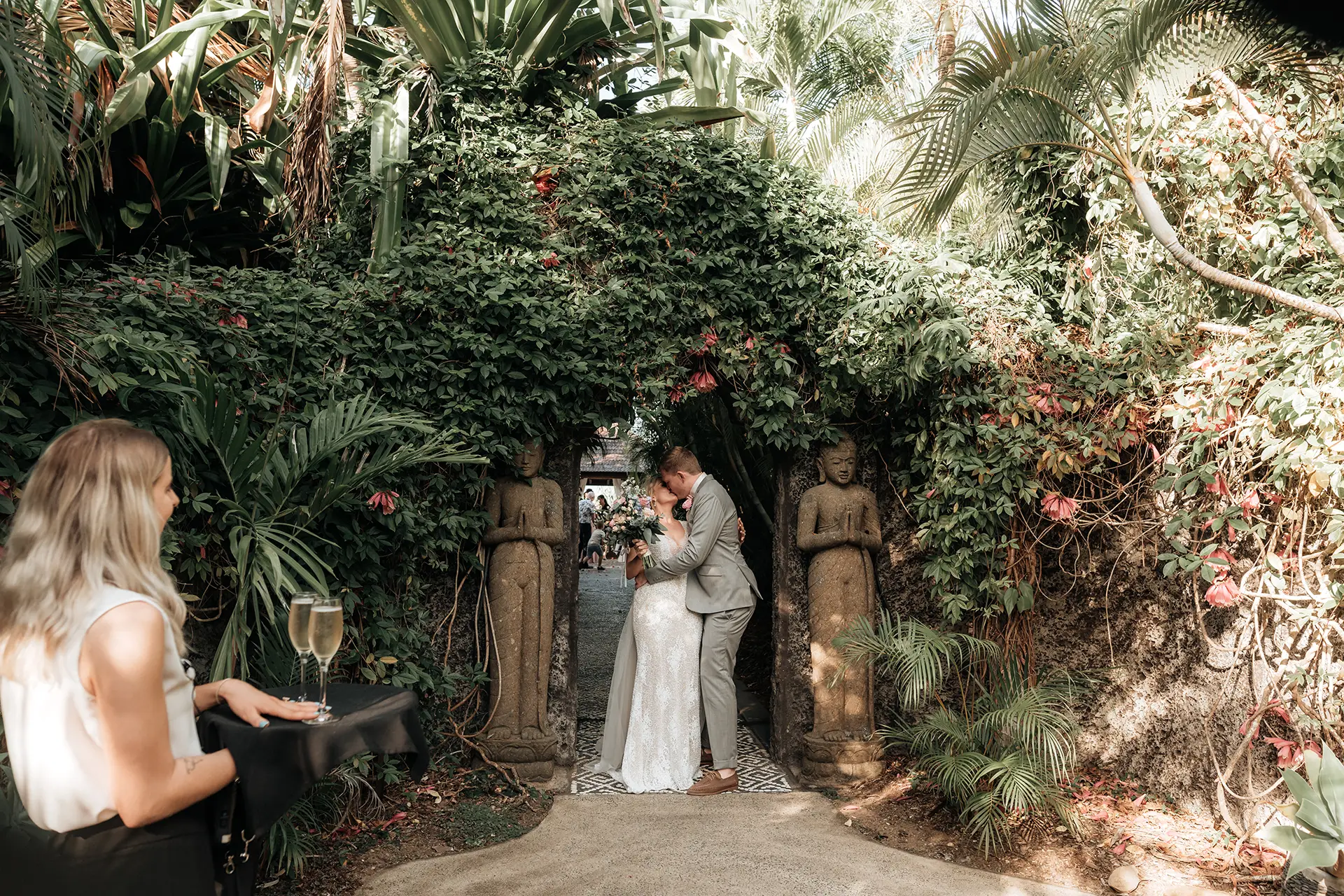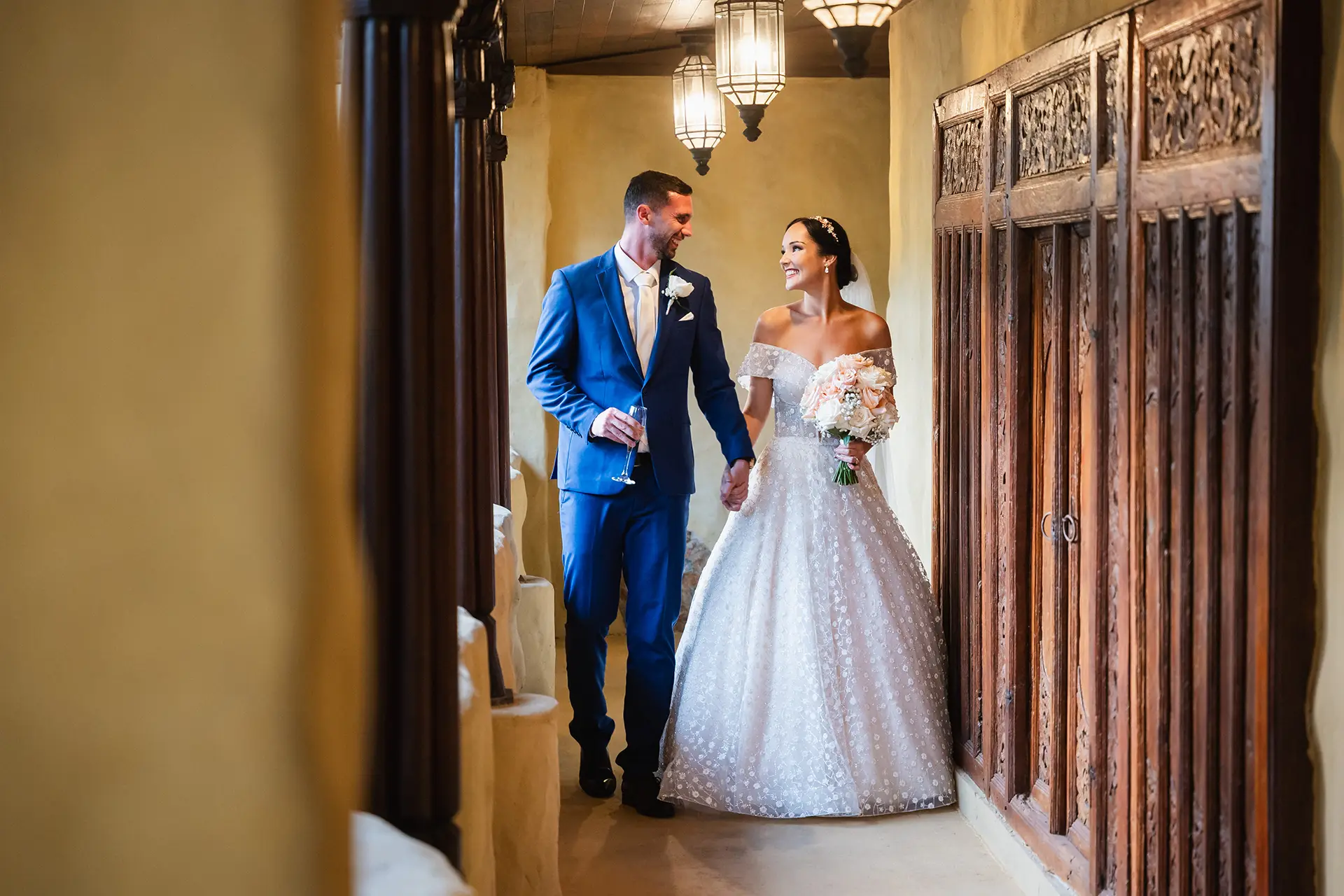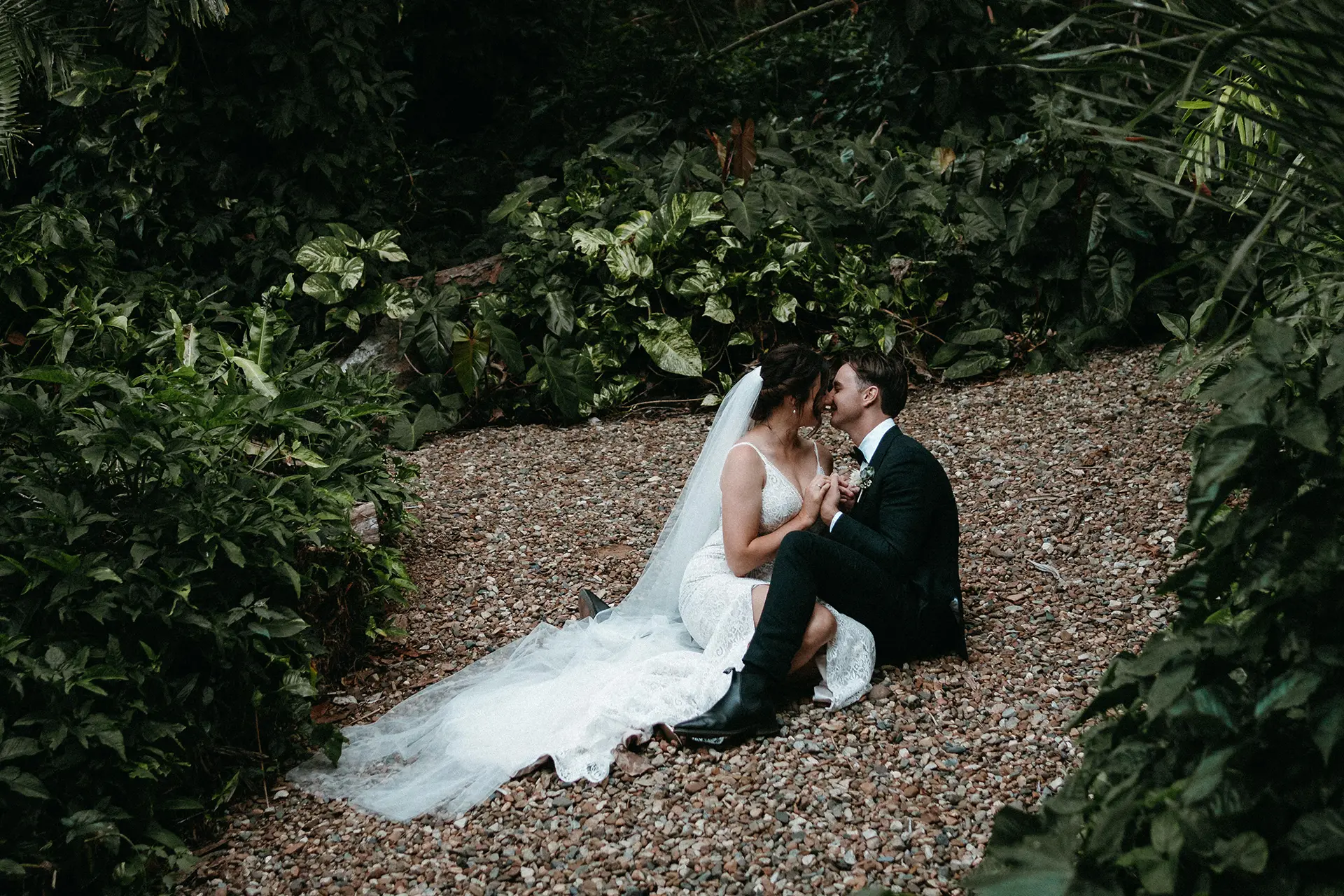So, you said yes to the ring and you’ve decided that you want to get married in Qld. Congratulations you’ve picked the perfect state for a stunning destination wedding!
Let’s see what comes next…
First of all, it’s time to start doing your research for planning the perfect day.
If you haven’t decided on a venue yet, this stress-free guide will tell you what you need to consider for wedding planning in Qld.
Travel Options
You might think that the first step of creating your wedding checklist Australia is choosing the location, but we suggest doing otherwise. Before anything, think about how much time and money you are willing to spend on travel and then look for locations that match your budget and schedule restraints. Will it be an inland North Queensland wedding venue or can you invest more and opt for a Whitsunday wedding venue? Consider the availability of local airports, transfers, flight costs for you and your guests, time of year to travel, and anything else that can put too much load on your planning or can deter guests from attending your event.Queensland Weather
Variations throughout the year are common in Australia, even within the borders of each state. Consider the comfort of guests and research extreme weather conditions that may occur in parts of the state. When it comes to Queensland weather, here are the main things you need to keep in mind:- For summer weddings, have a rain-plan in place and make sure your venue has an indoor/sheltered space where you can move the entire event. You may need this alternate option in case of summer storms or extreme heat;
- Plan your ceremony time taking temperatures into account. On a summer day, when temperatures can exceed 30 degrees Celsius, the lack of shade can be a serious problem and sandy beach photos may result in burnt feet;
- Remember to offer cold water to guests during the ceremony, no matter what the weather is like;
- Getting married near water or in a rainforest is extraordinary, but the presence of mosquitoes can spoil your celebration. Prepare pest repellents in advance so your wedding does not turn into a feast for mosquitoes.
Setting a Budget
How much do you want to spend with your wedding planning? Keep in mind that you will need to pay for a large number of products and services, including wedding venue, wedding dress (purchase or rent), wedding photography, marriage celebrant, transportation, videography, catering, music, entertainment, decorations, bridesmaid dresses, wedding invitations, wedding cake, flowers, hair and makeup, unexpected expenses, and others (depending on your preferences). Once you know how much you afford and are willing to spend on a venue, you can start making a list of locations where you would like to get married. As much as it might be tempting to blow the majority of your budget on an over-the-top venue, you need to keep in mind that the venue cost is just one part of your wedding expenditure.Legalities
There have been more than a few cases around the world of couples who were not able to get married on the expected date due to bureaucratic errors. It may not be the most exciting aspect of wedding planning but it is an important one, so be sure to include it in your wedding checklist Australia. In Queensland it is necessary to complete and submit a notice of intended marriage form, secure a licensed marriage celebrant, prepare identity and eligibility documents, find qualifying witnesses, and find an interpreter in case one or both of you can’t understand or speak English. More information can be found on the Queensland Government website.Covid-Safe
Although an increasing part of the population is receiving the anti-Covid vaccine, restrictions are still in place. If you want to get married in Queensland, whether you do it locally, at a destination wedding venue or at a luxury wedding venue Queensland, you will need to follow some strict regulations. The Covid Safe Plan for weddings in for-hire venues issued by the Queensland Government in October last year is still in place and mentions obligations such as:- Everyone has an obligation to stay at home while displaying any symptoms such as fever or coughing;
- Contact information must be kept for patrons, contractors, and staff;
- Businesses must display the COVID Safe Checklist on their front entrance door or window and be clearly visible;
- Physical distancing to be observed, including remaining 1.5 metres away from other persons who are not part the persons household group and regular hand hygiene, as well as avoiding handshaking and other greetings where contact is made;
- Creating floor markings that provide minimum guide distances between customers queuing for service and using physical barriers where possible;
- Making hand sanitisers freely available throughout the business based upon capacity for customer use.




